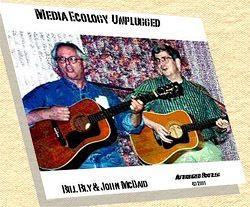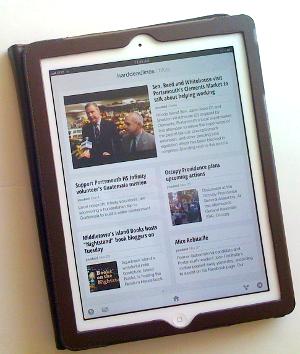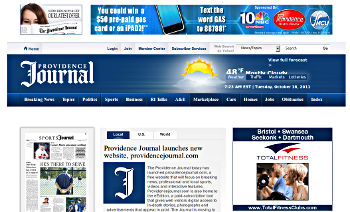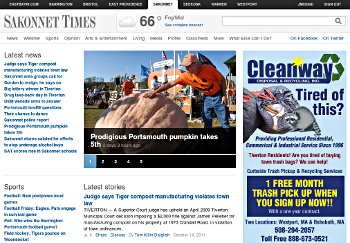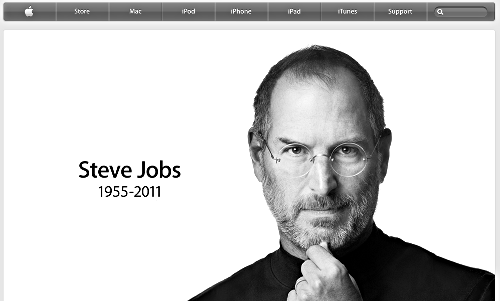This was not a good week for journalism. On Thursday, an editor at The Oregonian was fired after admitting that she deliberately misrepresented the facts surrounding the death of a fellow editor. There's no "allegedly" in that sentence; she admitted as much on Facebook. Then, yesterday, the National Public Radio (NPR) program "This American Life" was forced to issue a retraction for their coverage of Apple critic Mike Daisey's monologue "The Agony and Ecstasy of Steve Jobs" which brought national attention to alleged worker safety abuses at Chinese electronics supplier Foxconn. There *is* an "alleged" in that sentence because, as the American Life retraction puts it, the story contained "numerous fabrications."
On the face of it, these are unconnected data points. On the one hand, you have a monologuist who performs on stage, and weaves together stories from a visit to the Foxconn factory. Daisey said on his site last night that he stands by his work, and that his "only regret" is allowing NPR to run his piece on a news program. "What I do is not journalism," Daisey says. "The tools of the theater are not the same as the tools of journalism."
On the other hand, you have a veteran hard-news editor knowingly lying to protect a friend's family from embarrassment. She had inside information about where and how her colleague died, but, acting as an unnamed "family friend," offered a fabricated story. "I understand the need my newspaper felt to punish my violation of journalistic ethics in some way," Glanville said in her Facebook post, accepting her firing by the Oregonian.
That leads to the thread connecting these episodes: the fundamental role of the reporter as first-hand witness. Notice that I did not say "journalist," because, to my mind — and apparently, to Daisey's — not all reporters are journalists. I'm using "reporter" in a wider, but still specific sense, of someone who comes into possession of a fact and communicates it to others, a situation much more common in today's world of social media and citizen journalism.
Now no one expects playwrights to subscribe to the Society of Professional Journalists Code of Ethics or the American Society of Newspaper Editors' Statement of Principles. Broadway houses don't send interns off to fact check All My Sons before mounting a production, and we don't require opposing quotes for balance in Spalding Gray's description of psychic surgery.
And there is an inescapable tension here because facts, by themselves, are meaningless. An individual data point, like a manufacturing defect in an airplane part or the suicide of a Chinese worker, only takes on meaning when it is embedded in a narrative. It's only when grouped together with other facts and synthesized that the fact becomes meaningful. Media theorist Gregory Bateson defined information as "a difference which makes a difference." Entangled in that notion of "making a difference" is the inherent bias of reporting: the very act of noticing already presupposes some intent, some perspective of the observer from which the difference matters. To notice a difference is to already be implicated, and the selection of facts and their assemblage is always the result of choices (whether acknowledged and examined or not) by the reporter.
So we depend on the "reporter" to be, at the very least, a fair witness to the facts. As Rebecca Rosen put it yesterday in a piece about Daisey at The Atlantic, "We live in a world fueled by emotional narratives (see, e.g., Kony2012) but that does not mean that facts are irrelevant. Factual accuracy is the currency by which sources -- news outlets -- establish credibility."
When we find the reporter's thumb on the scales — whether through Glanville's intentional deception or down Daisey's slippery slope of narrative expedience — we feel betrayed. We know, intellectually, that true objectivity is an impossible goal (as that quote from David Weinberger up there in my masthead attests) but we expect at least the standard of care implicit in the scientific method: Had we been observers, would we have seen or heard the same thing.
This is not just a requirement of journalism, but a foundational principle of culture. The reliability of knowledge is crucial to our ability to make life-or-death choices about things like climate change, health care reform, or attacking Middle Eastern countries. Media critic Jeff Jarvis puts it bluntly: "When anyone — performer, politician, blogger — says he has a license to lie because he’s not a journalist, he's lying."
As we are red-shifted away from the world by the widening synapses of electronic media, this becomes the central problem of reportage, and its implications are profound. People decide to act (or not) because of what they learn of the world through media, and no matter how noble the intention — and I do not doubt that Glanville or Daisey acted with anything but the best intent — there can be no justification.
There is no noble lie.
Full disclosure: I saw and enjoyed Mike Daisey's show in NY last week and had been working on a review to appear in these pages.
Update: Listen to the full This American Life show, "Retraction" online, or download. There's some painful audio there. Journalism critic Jay Rosen also has some smart commentary.
Update 2 (3/31/12): Adding a link to Prof. Jay Rosen's piece, "I'm there, you're not, let me tell you about it" which captures in a much more journalistic frame the notion of authority and responsibility I was trying to articulate. Him press think good.
